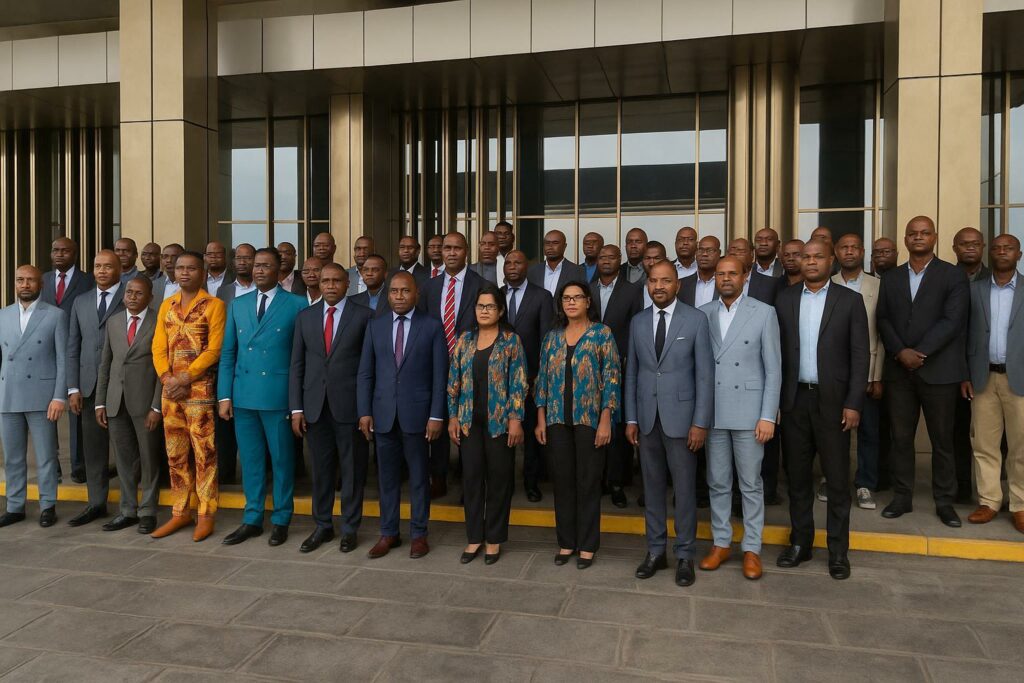Renewed institutional resolve in Brazzaville
Eight October’s opening of the second awareness-raising workshop on Congo’s overhauled public-procurement code crystallised the renewed resolve of the Public Procurement Regulatory Authority to anchor governance reforms in daily administrative practice. In a sober yet firm address, the Authority’s chair, Ludovic Ngouala, reiterated the body’s statutory mandate: “We shall remain the guarantor of transparency, efficiency and probity in the management of public resources, in full service of the country’s sustainable development.” Such phrasing, delivered in the packed conference hall of the Ministry of Finance annex, set the tone for three days of technical immersion for procurement officers from Brazzaville and the neighbouring Pool department.
The encounter follows similar sessions held in Pointe-Noire and forms part of a carefully sequenced national roll-out. By gathering sub-prefectural officials alongside executives from public enterprises, the regulator intends to foster a shared professional culture that transcends institutional silos and local particularities.
Bridging knowledge gaps across the procurement chain
Director-General Joël Ikama Ngatse, the technocrat piloting the workshops, underlined a recurrent obstacle to regulatory reform in many administrations: asymmetrical access to information. “A rule can only produce its effects when it is equally understood and uniformly applied,” he reminded the audience. The agenda therefore alternated between doctrinal presentations on innovations introduced by the new decree and pragmatic exercises simulating tender evaluation, contract execution and ex-post audit.
Participants, ranging from engineers supervising road contracts to municipal accountants, were invited to dissect real cases in order to internalise sanction thresholds, publication requirements and complaint-handling timelines. These peer-to-peer exchanges, according to facilitators, help crystallise lessons more effectively than formal lectures alone, while revealing grey zones that may call for additional interpretative guidance from the regulator.
Strategic leverage of the PAGIR–World Bank nexus
Behind the scenes, the workshop series enjoys technical and financial backing from the World Bank through the programme “Accelerating Institutional Governance and Reforms for Sustainable Service Delivery” (PAGIR). The instrument, structured as a Programme-for-Results, releases disbursements against verifiable milestones, thereby dovetailing international support with national ownership. In that sense, Congo’s procurement reform embodies a broader continental trend where multilaterals increasingly tie concessional financing to demonstrable governance improvements.
Officials involved in the Brazzaville session stress that this conditionality does not amount to external tutelage. On the contrary, it offers a yardstick against which domestic institutions can measure progress while retaining full sovereignty over policy choices. The choice to hold capacity-building events in provincial centres as well as the capital echoes the government’s own decentralisation agenda enshrined in recent legislation.
Legal point: an upgraded framework for fair competition
The revised regulatory corpus, promulgated earlier this year, recalibrates Congo’s procurement landscape around three pivots. First, it consolidates previously scattered texts into a single coherent decree, simplifying citation and enforcement. Second, it tightens disclosure obligations, requiring procuring entities to publish tender notices, evaluation reports and contract awards on an electronic portal, thereby reducing information asymmetry for domestic small and medium-sized enterprises. Third, it strengthens recourse mechanisms by shortening deadlines for the regulator’s decisions on complaints, creating a more predictable environment for bidders.
These innovations align Congo with standards espoused by the African Development Bank’s Model Law and reflect elements of the UNCITRAL framework, yet they have been tailored to local administrative realities. Workshop facilitators insist that a calibrated transition period will allow entities to upgrade internal manuals and digital tools without disrupting service delivery.
Key takeaways for contractors and taxpayers
For the private sector, the regulator’s travelling seminar signals a decisive shift towards a level playing field. Uniform application of rules should mitigate the informal barriers that have historically deterred smaller firms from competing for public contracts. In turn, the state can expect keener pricing and greater value for money, outcomes that resonate with the government’s fiscal-consolidation strategy.
Ordinary taxpayers, often remote from the technicalities of procurement law, stand to benefit indirectly through improved infrastructure and services procured at optimal cost. As one municipal participant put it during a coffee-break aside, “Transparency is not an abstract virtue; it is asphalt on a road, medicine in a clinic, textbooks in a classroom.” The Authority’s itinerary now heads back to Pointe-Noire for a follow-up audit of the first workshop’s impact, before rolling out sessions in the northern departments later in the year.
While challenges of capacity and legacy practices remain, the tone struck in Brazzaville suggests a reform dynamic gathering genuine traction—an evolution that partners and citizens alike will watch closely over the coming months.

